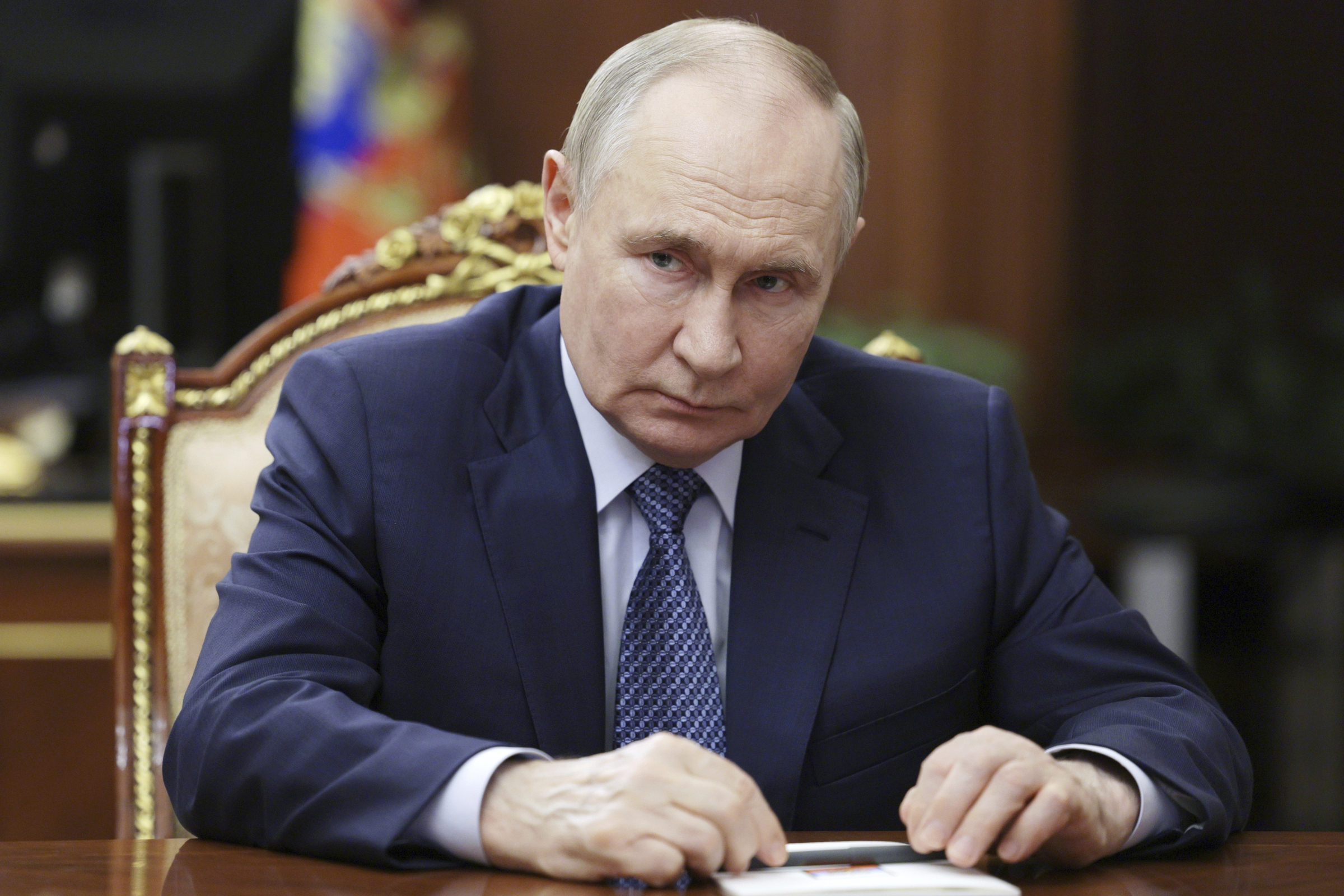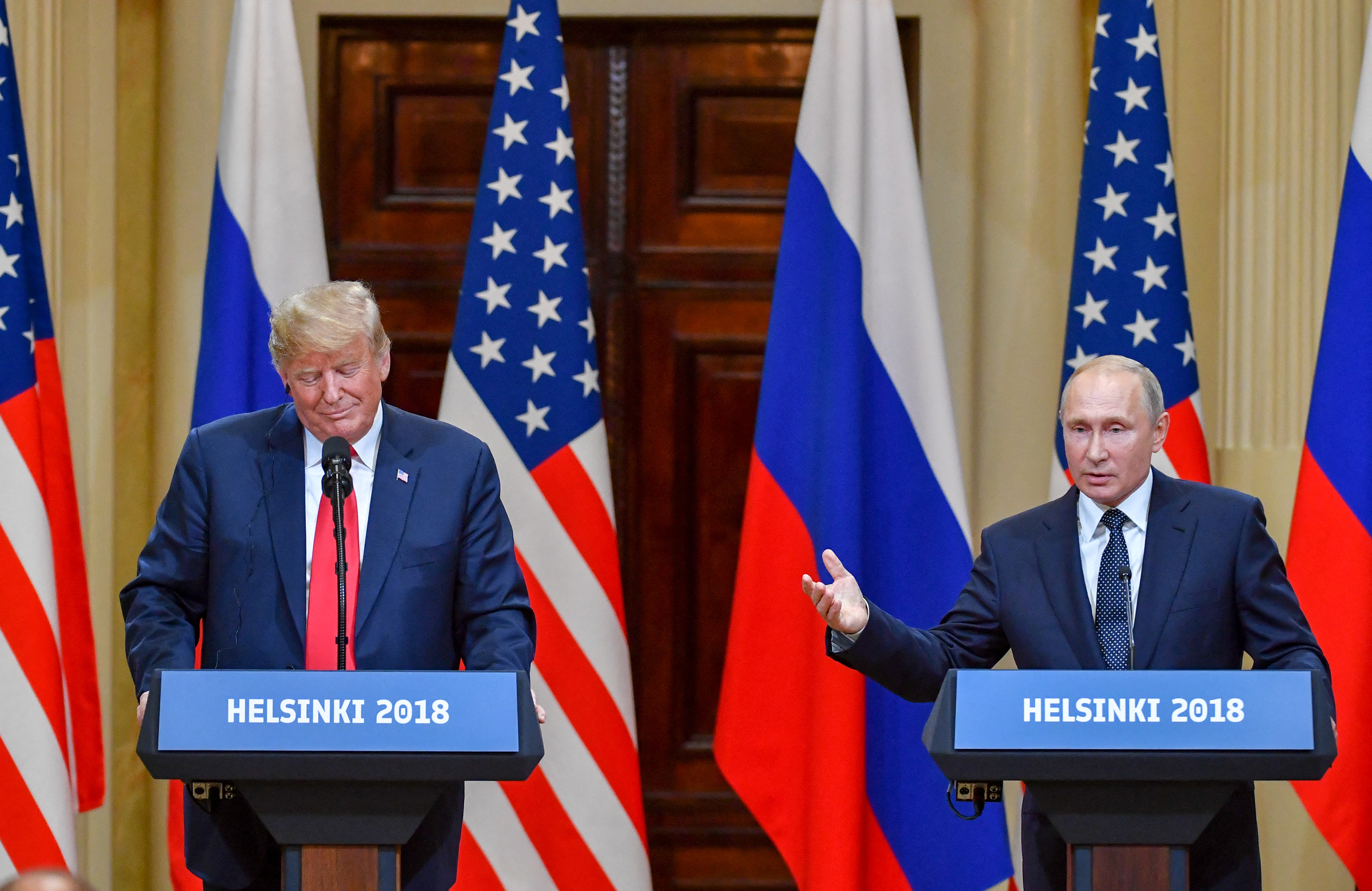US President Donald Trump and his Russian counterpart, Vladimir Putin, confirmed they will hold a summit in Alaska next week. This is seen as a positive sign after recent escalating tensions, particularly the online exchange between Trump and Russian Security Council Deputy Chairman Dmitry Medvedev.
The meeting announcement came after Putin hosted US special envoy Steve Witkoff at the Kremlin on 6/8, just two days before Trump's 8/8 deadline for Russia to present a solution to end the war in Ukraine.
BBC analyst Laura Gozzi views this as a strategic move by Putin. By committing to direct dialogue, Putin eases Trump's displeasure, helping Moscow avoid secondary sanctions Washington threatened to impose on buyers of Russian oil.
It also allows the Kremlin to avoid pressure to immediately end the war. Putin asserted last week that Russia's objectives in Ukraine remain unchanged, making it unlikely Moscow is ready to compromise on its firm preconditions.
"The Kremlin may also believe they can persuade Trump on the terms for ending the conflict," Gozzi wrote.
 |
Russian President Vladimir Putin at the Kremlin in Moscow on 5/8. Photo: AP |
Russian President Vladimir Putin at the Kremlin in Moscow on 5/8. Photo: AP
Many analysts familiar with Putin, as well as those who have worked with the Russian leader, believe the Kremlin sees Trump as best positioned to help Moscow achieve its goals in Ukraine.
This is why Putin appears to consistently appease Trump and avoid undermining their relationship, even as the US president grows impatient with Russia's refusal to agree to a ceasefire.
"Russia needs Trump to realize its conditions in the conflict with Ukraine," said Sergei Markov, a pro-Kremlin political analyst in Moscow.
Russian state media and pro-Kremlin bloggers celebrated the summit news. Komsomolskaya Pravda stated Trump had once again shifted to a positive stance toward Russia, while Moskovsky Komsomolets declared "Putin has won".
Yuri Podolyaka, a pro-Kremlin blogger with 3 million followers, called it "masterful diplomatic tactics" by Putin. "It seems Putin has succeeded in keeping Trump on the 'negotiation merry-go-round'," Podolyaka wrote.
Since returning to the White House in late January, Trump has pushed for negotiations to end the Ukraine conflict. However, three rounds of direct talks between Russian and Ukrainian delegations in Turkey yielded no progress on a ceasefire, despite Trump's urging.
Washington-Moscow relations became strained as Trump repeatedly warned of sanctions if Russia didn't reach a ceasefire agreement in Ukraine by 8/8. The White House confirming the summit just before the deadline led some analysts to believe Putin may have made promises to persuade Trump to postpone sanctions.
Kremlin officials said Putin sent some "signals" to Witkoff regarding Ukraine, but offered no specifics. Some experts believe Putin may have hinted at concessions on territorial division or exchange in a potential agreement with Ukraine.
For months, Russian negotiators insisted to their US counterparts that Moscow must retain control of all 4 regions it annexed in Ukraine in late 2022. The US views this as a sign Russia isn't serious about ending the conflict.
Trump said "there will be a territorial exchange" benefiting both Russia and Ukraine at the upcoming summit, but gave no details.
Those close to the Kremlin suggest core demands for Putin, such as preventing Ukraine from joining NATO, limiting its military capabilities, and establishing a more Moscow-friendly government in Kyiv, are more important than territorial issues.
"What matters to Putin is ensuring Ukraine doesn't join NATO, that NATO countries have no military presence in Ukraine, and a series of other political demands specifically for Kyiv," said Tatiana Stanovaya, a senior fellow at the Carnegie Moscow Center in Russia.
 |
US President Donald Trump (left) and Russian counterpart Vladimir Putin during a press conference in Helsinki, Finland, in 7/2018. Photo: AFP |
US President Donald Trump (left) and Russian counterpart Vladimir Putin during a press conference in Helsinki, Finland, in 7/2018. Photo: AFP
There's little indication Putin will abandon these core objectives, despite threats from the White House. However, Feodor Voitolovsky, director of the Russian government-funded Institute of World Economy and International Relations, said Putin is showing flexibility by keeping dialogue open on Ukraine while Russian forces hold the upper hand on the battlefield.
"We can clearly fight more, wait a few more months and achieve even bigger, more important results on the battlefield," said Voitolovsky, who previously worked on advisory boards for the Russian Foreign Ministry and Security Council.
Stanovaya said Putin wants the Ukrainian president to make concessions under pressure from Trump, rather than on the battlefield. "Russian forces are ready to fight for years if necessary. Of course, they don't want to," she said.
While the US-Russia summit offers hope for ending the conflict, some analysts worry Trump is rushing toward a deal at any cost.
"Trump is trying to achieve a peace agreement, while Putin will likely seek a deal requiring Ukraine's surrender," said John Foreman, former British defense attache in Moscow. "Trump will then be satisfied with symbolic concessions from Putin, sanctions will be set aside, and the conflict will continue."
Thuy Lam (According to BBC, Washington Post)












